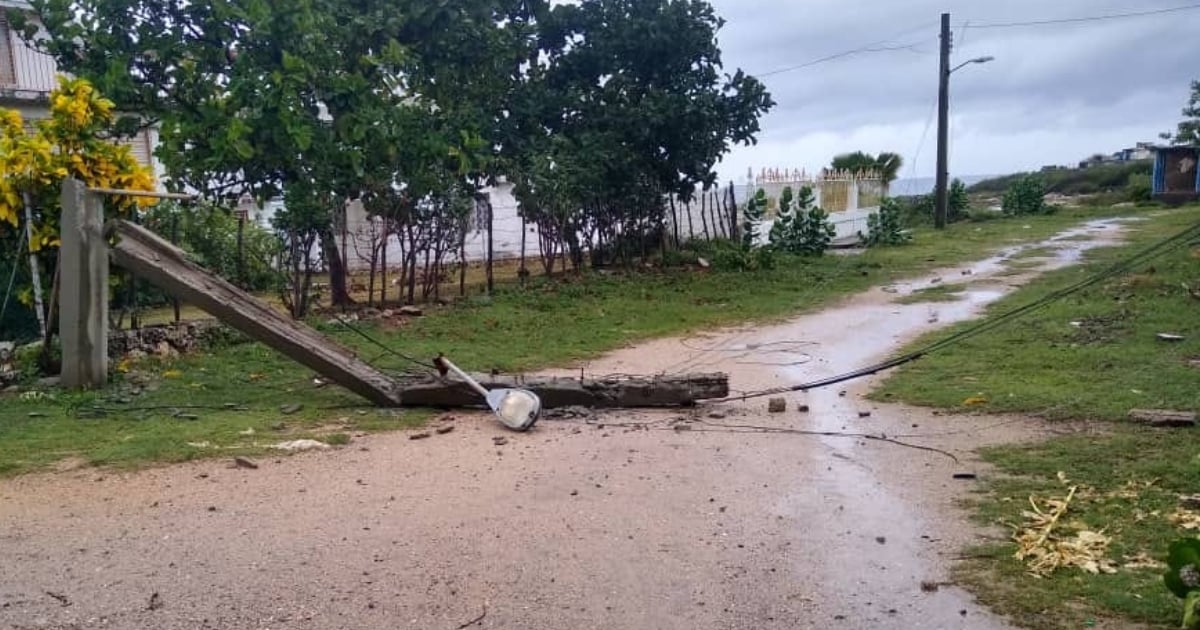
The National Staff of the Civil Defense of Cuba declared "normalcy" in the provinces from Guantánamo to Camagüey, effective at 11 a.m. on Wednesday, due to Hurricane Rafael—expected to make landfall in Cuba—not posing a threat to those areas.
The Informative Note No. 5 from the DC stated that "according to information from the Forecast Center of the Meteorology Institute, the evolution and trajectory of Hurricane Rafael does not pose a danger to the provinces of Guantánamo, Santiago de Cuba, Granma, Holguín, Las Tunas, and Camagüey. Therefore, it was decided to return to normal conditions in these territories, which are currently in Informative Phase, starting at 11:00 hours today."
The statement clarified that “in the case of the province of Guantánamo, the municipalities of San Antonio del Sur, Imías, Maisí, and Baracoa continue the recovery process from Hurricane Oscar.”
The provinces of Pinar del Río, Artemisa, Mayabeque, Havana, Matanzas, Villa Clara, Cienfuegos, Sancti Spíritus, and the special municipality of the Isle of Youth remain in Alarm Phase due to the hurricane. This phase was activated at six in the morning on Wednesday, due to the imminent approach of Hurricane Rafael, which has already reached Category 3 on the Saffir-Simpson scale.
Meanwhile, Ciego de Ávila is in the Informative Phase, but it "must pay special attention to coastal flooding on the southern coast," the statement emphasized.
The Civil Defense urged the population "to stay informed through national, provincial, and municipal media, as well as official social media profiles"; however, a large part of the country currently has no electricity.
He also called for "strictly adhering to the guidelines provided by local authorities and Civil Defense."
This Tuesday, while Rafael was still a tropical storm and gaining in organization and intensity as it moved through the Caribbean, its feeder bands impacted the eastern region of Cuba. Some areas in the province of Santiago de Cuba particularly felt the effects of the storm.
From that province, local media reported fallen trees and telephone poles, damage to electrical installations, and heavy rains that caused flooding.
Although the Cuban authorities declared "normalcy" in Guantánamo, the country's easternmost province remains devastated by the damage caused by the floods from the heavy rains of Hurricane Oscar, which isolated the municipalities of San Antonio del Sur and Imías for several days.
The Category 1 cyclone destroyed over 11,000 houses either completely or partially in those two municipalities, as well as in Baracoa and Maisí. It devastated more than 13,000 hectares of agricultural crops and caused significant damage to electrical and telephone networks.
But the most terrible consequence was the loss of human lives. According to figures from the Cuban government, eight people died, while two others are still reported missing. However, residents of the municipalities hardest hit by the hurricane have maintained from the outset that the number of dead and missing is much higher.
What do you think?
COMMENTFiled under: